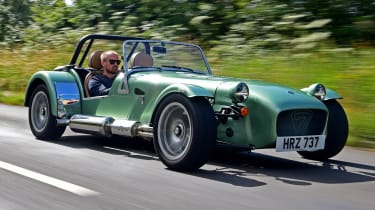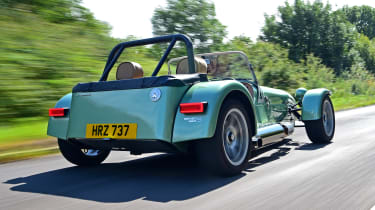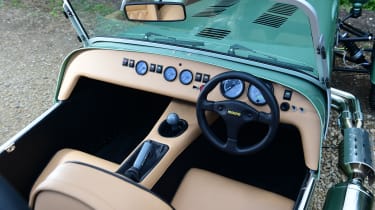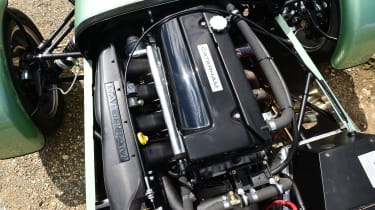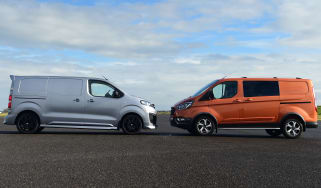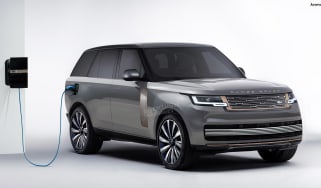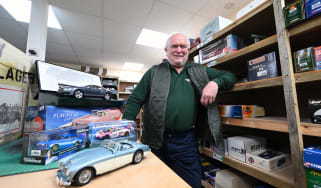New Caterham Seven 360S 2022 review
The Caterham 360S is as close to a daily driver as the brand offers, if you can live without much luggage
Verdict
It’s pretty much a given that a Caterham Seven will deliver huge thrills, but in this S spec, it’s also a car that’s not too punishing on the road, either. If you don’t need the practicality of a hot hatch or coupe, then the 360 S could be the perfect solution - and it doesn’t even cost the earth to buy or run.
Think of a Caterham, and chances are that the first thing that springs to mind is an extreme track day toy. No roof, probably no windscreen, and tyres so light on tread that you’d think twice about aiming towards a puddle.
The trade-off for a lack of refinement or practicality is incredible performance, a chassis dripping with feel and adjustability, and levels of excitement that are hard to find on four wheels at any price.
But what if you took the edge off that ever so slightly; would it make a Caterham Seven easy to drive on the road - or even live with?
This is the 360S, and of all the models the British brand produces, this could be the closest thing to a daily driver in its thrill-a-minute range.
The S is one of two packages available, sitting alongside the R, which adds lots of carbon fibre trimmings, composite race seats and four-point harnesses. With the car you see in these pictures, the first clue to that greater bias towards usability you get with the S starts with the colour scheme - we think that the combination of Aston Martin Apple Tree Green paint and Muirhead ‘Biscuit Tan’ leather interior looks gorgeous in a classic, understated kind of way.
Look a little closer though, and you’ll see that the driver and passenger are secured into those seats not by motorsport-spec harnesses, but regular seatbelts. The seats themselves aren’t hard shells with a bare minimum of padding, but more conventional items with enough padding to take the sting out of longer trips.
More reviews
Car group tests
In-depth reviews
Long-term tests
Road tests
Then there’s the tyres, which aren’t some sort of sticky semi-slicks, but a set of Avon ZT5s which have a reasonable amount of tread on them.
The 360 sits as the second model up in the Seven range. The numbers, which roughly translate to power-to-weight ratios in bhp per tonne, start with the 170, then the 360, the 420 (and track-focussed 420 Cup) and the bonkers 620.
With a kerb weight of 565kg, that means the model you see here has 180bhp, which comes courtesy of a Ford-derived 2.0-litre engine. That maximum is delivered at 7,300rpm, while the 194Nm of torque arrives at a heady 6,100rpm. It’s sent to the road via a five-speed manual gearbox.
For a road car, those figures definitely translate into a sweet spot. Performance is hardly in short supply - at 4.8 seconds, the 0-62mph time is just a tenth of a second shy of a Volkswagen Golf R - but it feels entirely usable.
It’s the way it delivers that performance that is the best part, though. The 2.0-litre unit sounds angry under heavy throttle, and the exhaust exits barely a foot below your right ear, so you hear every minute detail in the tune it plays. It loves to rev, too; throttle response is instantaneous, and with so little mass to shift, the 360 leaps forward with a level of enthusiasm completely alien to almost any other performance car.

That feeling also extends to the way the S corners. Even on road tyres and a more compliant suspension setup, the way the Seven turns into a corner feels every bit like a track day special. The steering is wonderful, with instant responses even half a degree from straight-ahead, and it transmits all the feedback you could ever want from the road. It immediately makes hot hatches, even leading sports cars like a Porsche Cayman, feel numb and lethargic.
That it does so while delivering a fairly compliant ride is all the more impressive. Its compact dimensions and small wheels mean that larger bumps can throw it off course somewhat, but build up some speed and it soaks up rough surfaces so well - even on the optional Sports Suspension package. As a driver’s car for the road, it’s wonderful.
There are compromises that you may need to live with, though. Take the rear view mirror; essentially a pointless item, because it vibrates so badly that the vision behind you is completely blurred. From a distance of fifty metres the buzzing will mean that you’ll struggle to pick out much detail; is that a Mini close behind me, or is it a Porsche Cayenne slightly further away? It’s hard to tell.
With a driving position so close to the ground, the Seven feels tiny in everyday traffic, too. Superminis look like SUVs. SUVs look like houses. The roof is rather fiddly to install and remove, too, and you won’t be able to carry much luggage. The gearbox is wonderful, but the clutch requires a delicate touch. It’s something you’ll soon get used to.
In the grand scheme of performance car prices, The Caterham Seven 360S doesn’t even seem that expensive. The car starts from around £32,000, though that’s for one which arrives at your door in kit form - get Caterham to assemble it for you and it’ll be another £2,595 on top of that. You can even take out a finance deal; place a £3,000 deposit up front, and a 36-month term with a £17,595 balloon payment comes to £470 per month. Low weight means low fuel bills, too - if you’re not driving it at maximum attack on track, it’s even quite frugal.
| Model: |
Caterham Seven 360S SV |
| Price: | £34,585 |
| Engine: | 2.0 4cyl petrol |
| Power/torque: | 180bhp/194Nm |
| Transmission: |
Five-speed manual, rear-wheel drive |
| 0-62mph: | 4.8 seconds |
| Top speed: | 130 mph |
| On sale: | Now |
Now read our list of the best track day cars...

